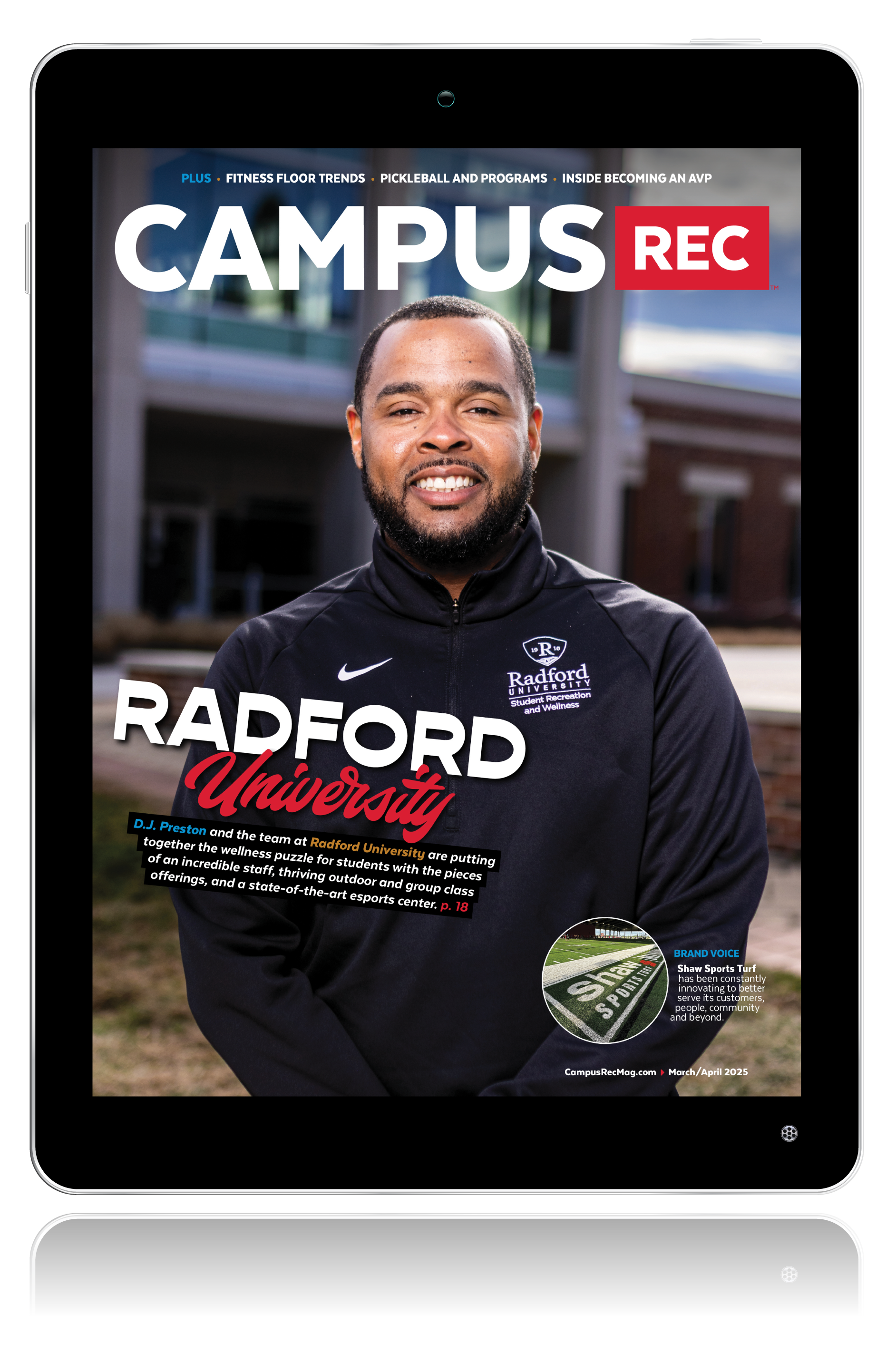New campus rec activities are designed to be more inclusive to students each year. One campus in particular has found success through a non-traditional rec offering: The Equestrian Center at the University of California, Davis (UC Davis).
“Non-traditional rec reaches the students who haven’t played on a sports team or who aren’t comfortable walking into the gym and working out, or who want to do something else,” said Meagan Drescher, the coordinator of the equestrian center at UC Davis. “Maybe they are horseback riders and want to be able to continue that in college; maybe they otherwise wouldn’t be walking into the gym and getting those benefits.”
Built in the 1960s, the 25-acre equestrian center at UC Davis originally began as a breeding facility for horses under animal science. Now, home to almost 90 horses, the center offers students riding lessons, boarding, sport clubs, volunteer programs and, more recently, a NCAA women’s equestrian team.
Whether a student is a new or experienced rider, the equestrian center offers lessons. Additionally, the center also offers four different equestrian sports clubs: dressage, hunter jumper, western and event.
Open to students and the public, one volunteer program offered though the center is called Guardian Angels. This program is for anyone who wants to spend time with horses, as in walking and grooming them.
Another program unique to the equestrian center is Hooves for Heroes. Similar to Guardian Angels, the equestrian center partners with the Veteran’s Success Center on campus to teach basic handling and safety skills, as well as understanding horse behavior.
Drescher has found participants in these special programs are not the only ones who can benefit from non-traditional rec. In the campus rec department at UC Davis, they offer a fee waiver, provided through a partnership with Amazon, that students can apply for if they have a financial barrier. This allows them to participate in the more expensive rec activities, such as the equestrian center. “Almost every application will mention wanting stress relief and wanting to find friends,” said Drescher.
Ultimately at the root of non-traditional rec, the goal is to reach the students you aren’t seeing in your rec center. “We all want students to find something they are passionate about,” said Drescher. “And whether they are getting that by riding a horse or marching in a band, or whether they are getting that by playing a team sport, the end game is still the same as far as the best interest for the student.”










